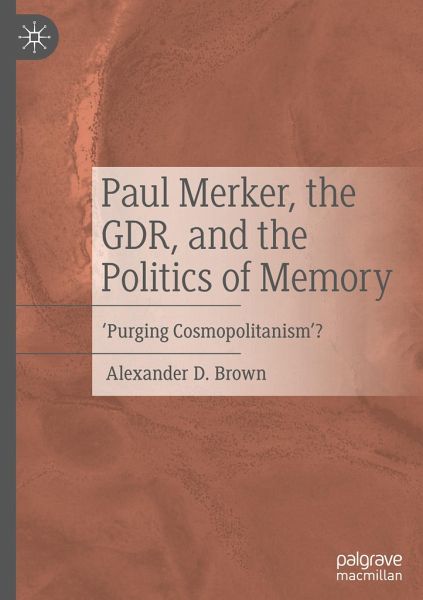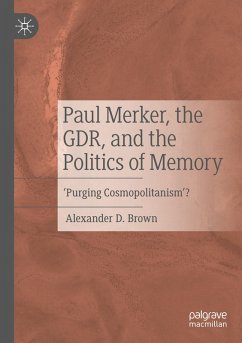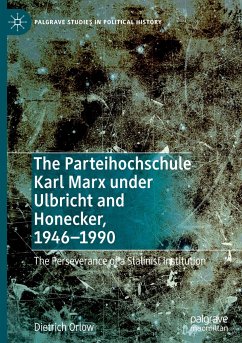
Paul Merker, the GDR, and the Politics of Memory
'Purging Cosmopolitanism'?
Versandkostenfrei!
Versandfertig in 6-10 Tagen
106,99 €
inkl. MwSt.
Weitere Ausgaben:

PAYBACK Punkte
53 °P sammeln!
This book presents ground-breaking research into the 'Merker affair,' a series of events that took place in the German Democratic Republic (GDR) in the early 1950s, which saw Paul Merker, a member of the ruling party's 'Politburo,' become ensnared in the agent hysteria of the period. He was ultimately deposed, arrested, and convicted on charges of espionage. However, the cultural significance of this affair goes far beyond the history of the early Cold War; it has become the definitive symbol of alleged antisemitism in the GDR. The narrative complex of an antisemitic GDR has in turn become a p...
This book presents ground-breaking research into the 'Merker affair,' a series of events that took place in the German Democratic Republic (GDR) in the early 1950s, which saw Paul Merker, a member of the ruling party's 'Politburo,' become ensnared in the agent hysteria of the period. He was ultimately deposed, arrested, and convicted on charges of espionage. However, the cultural significance of this affair goes far beyond the history of the early Cold War; it has become the definitive symbol of alleged antisemitism in the GDR. The narrative complex of an antisemitic GDR has in turn become a prominent topos within the politics of memory in Germany. The author combines an empirical study of the pertinent primary sources with a genealogical analysis of discourse on the Merker affair in order to question and historicise many of the entrenched historiographical tropes surrounding it, and indeed broader subjects such as antifascism and antisemitism in a German context. In doing so, the book offers insight into how German state-mandated institutions and official bodies have shaped our collective vision of the past.












